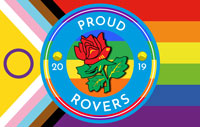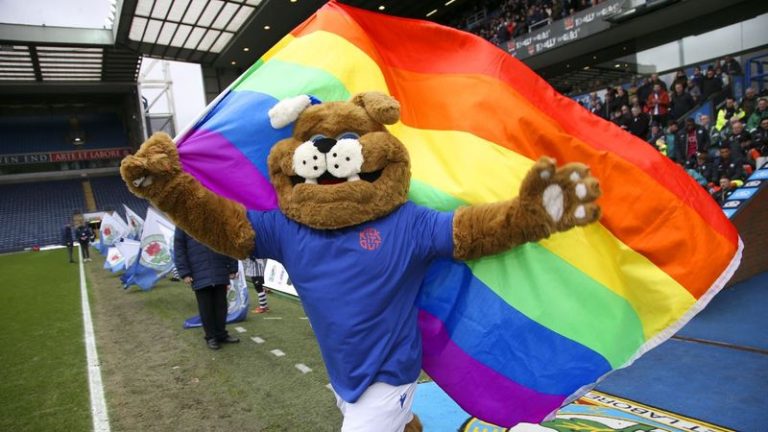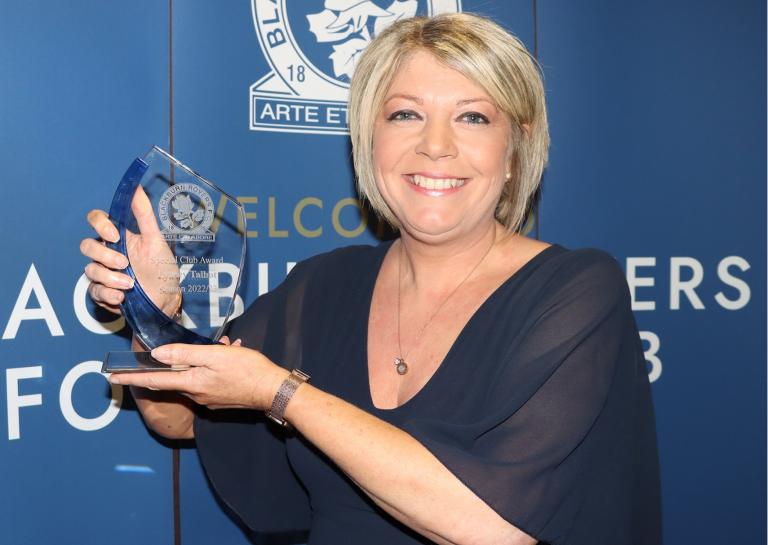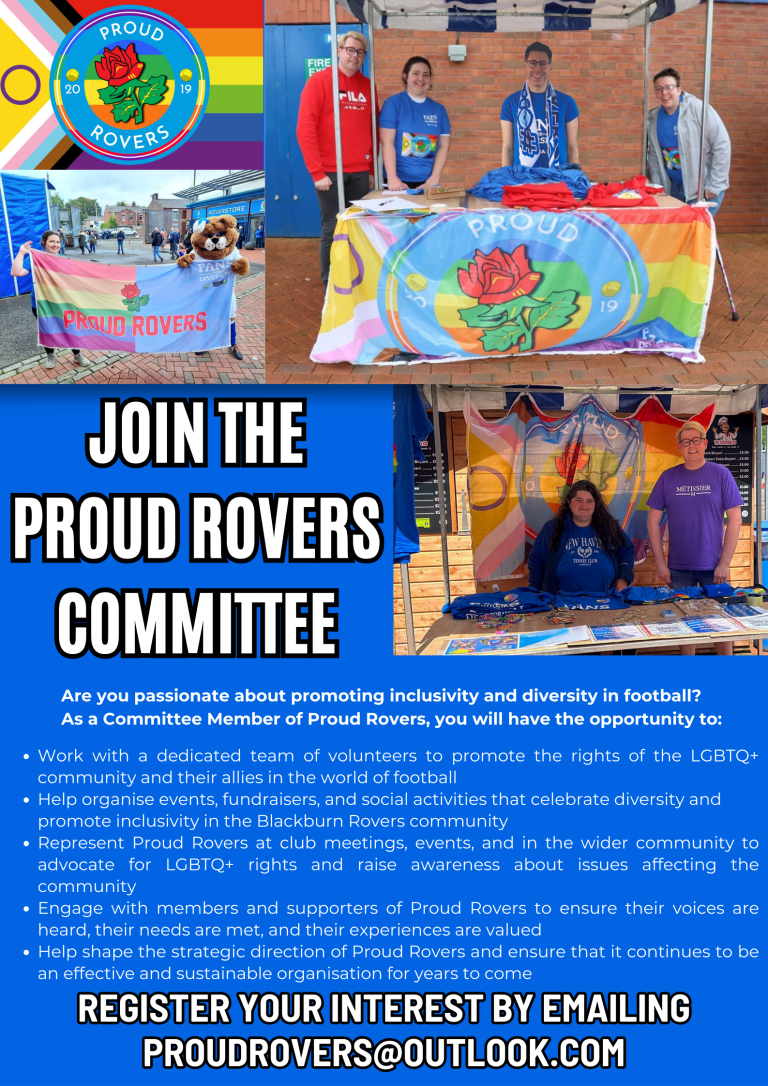Verity Hinchcliffe for Proud Rovers
Since the England Lioness’s success in the 2022 Euros, the popularity of the Women’s game has exploded into the mainstream arena. Die-hard fans now share a space with new fans young and old and the interest for girls to play at grassroots level has increased dramatically. But as Stonewall’s Rainbow Laces Campaign 2023 approaches, how visible is the LGBT+ Community in the Women’s game both nationally and worldwide?
According to PinkNews, “almost 12 per cent of the 736 players competing [in the 2023 Women’s World Cup] identify as lesbian, bisexual, queer or non-binary. So far, the known total of 88 LGBTQ+ players more than doubles the number who played in the 2019 tournament in France, Outsports reported.”
Within the England Lionesses senior squad, four players are openly out and share a visible and open presence on social media channels. Hotshot players from the global stage, such as Megan Rapinoe, Ashlyn Harris, Ali Krieger, Sam Kerr and Lina Hurtig have long been open about their identity and use this as a springboard to encourage further acceptance in women’s football. Several top tier coaches are also out and proud, as well as England Lionesses Alumni Alex Scott, who spoke openly about her LGBT+ identity and experiences.
The UK Women’s Super League (WSL) has been dubbed “the gayest league in all of women’s international sports” according to Write Through The Night, with at least 56 known out LGBT+ players. The Women’s Championship league will also offer the same acceptance and support to players and staff.
So does the Women’s game reflect ‘the growth of acceptance’ better than the men’s leagues and tournaments? The world has thankfully changed for the better since Justin Fashanu came out as gay in 1990, but there is still a long way to go before full equality and acceptance is reached in both the men’s and women’s games. Support Stonewall’s Rainbow Laces Campaign 2023 at BRFC vs Leeds 9th December 2023 and BRWFC Continental Cup match 13th December 2023.
Further reading:
BBC Sport: ‘Good, queer joy’ on and off the pitch
Give Me Sport: How women’s football is leading the way for LGBTQ+ visibility





